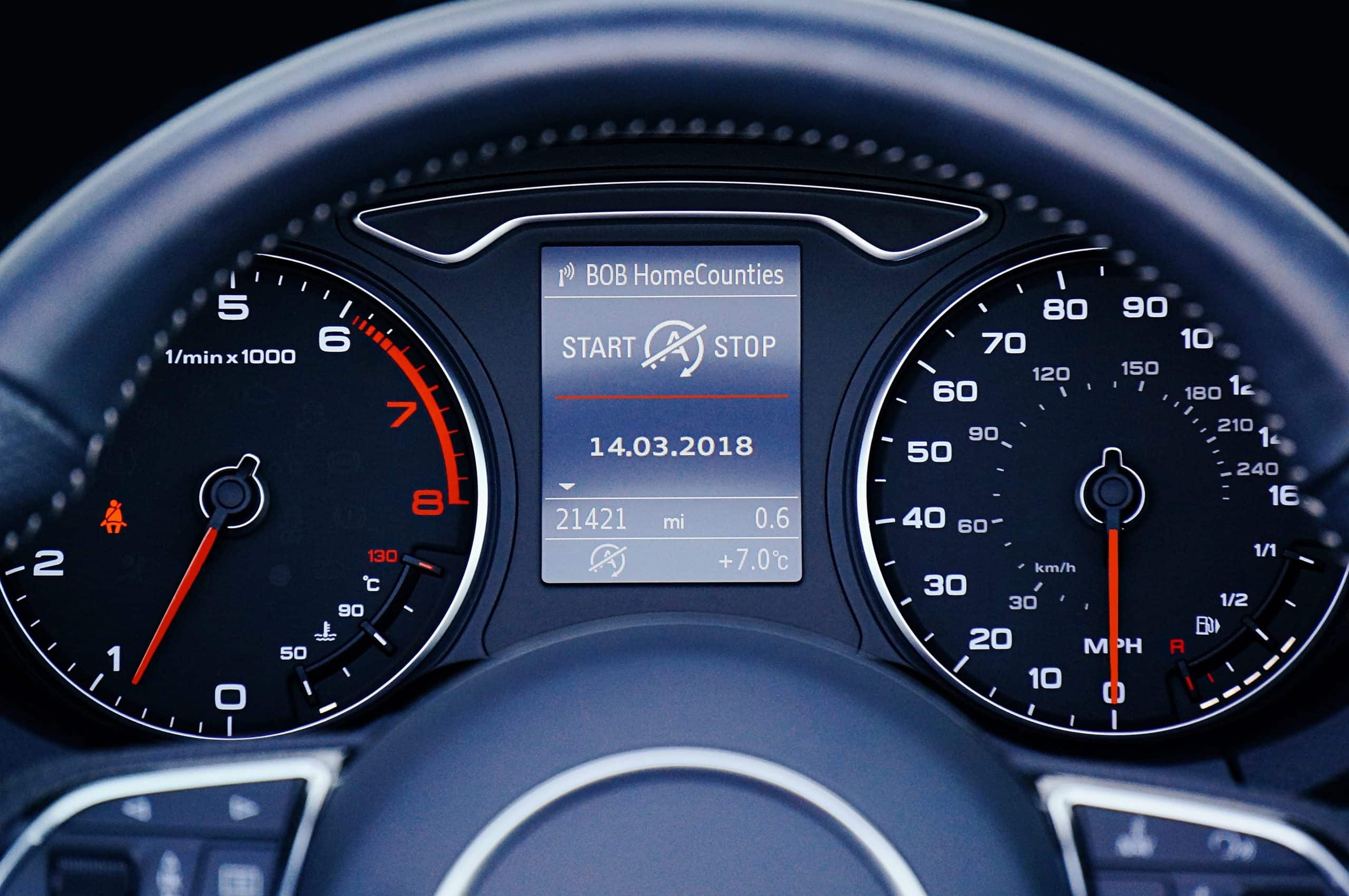
Sue Your Car Dealer For Ripping You Off
Taking Action: Steps to Address Car Dealership Fraud
Feeling stuck after a car dealership scam? Don’t worry, you’ve got backup. Our team of experienced auto fraud attorneys is ready to fight for your rights. We can help you:
- Get your money back
- Cancel unfair contracts
- Return the car to the dealer
- Make the dealer pay for damages or repairs you shouldn’t have had to cover
We know dealing with auto fraud can be stressful, so we’ve made it easy to get started. We’ll evaluate your case for free – no strings attached. Just give us a call at (818) 254-8413, and we’ll walk you through your options. You don’t have to face this alone – let’s work together to set things right.
Common Car Dealer Tricks in California
Car dealers often use the same old tricks to take advantage of buyers. At our firm, we’ve seen it all – from dealerships “forgetting” to pay off trade-ins to mishandling paperwork. Here’s what you need to watch out for:
- Trade-in troubles: Some dealers don’t pay off your old car’s loan as promised.
- Paperwork problems: Your trade-in might mysteriously vanish from the purchase agreement.
- Payment mix-ups: Your payment could end up applied to the wrong car entirely.
Know your rights: In California, dealers have 21 business days to pay off your trade-in and 15 days to transfer the title and registration for your new car. If these deadlines pass, it’s time to get suspicious.
Think you’ve been fooled by a car dealer? Don’t try to fight this battle alone. An auto fraud attorney can be your best ally in getting justice. If you spot any of these red flags or feel something’s not right with your car deal, it’s time to get expert help. Let’s look at some more ways dealers might try to pull a fast one on you.
Price Tag Trickery: When Dealers Charge More Than Advertised
Ever see a great deal online, only to find a higher price at the dealership? That’s not just frustrating – it’s illegal in California. Here’s what you need to know:
- The price you pay should match the advertised price. Period.
- Found a car advertised for $25,000 but the dealer wants $27,500? That’s grounds for legal action.
Most dealers list their cars online. You can often find these ads by searching the car’s VIN (Vehicle Identification Number). Here’s the kicker: even if you didn’t see the ad before buying, the law’s still on your side. A lawyer can help you sue the dealership and potentially get your money back.
Watch out for these common tricks:
- “Bait and switch”: Dealers advertise a low price to lure you in, then claim that the car is “sold.”
- MSRP confusion: Dealers might quote the Manufacturer’s Suggested Retail Price (MSRP) instead of their advertised price. Remember, these aren’t the same thing!
California law protects you from these tactics. Dealers must either show you proof that an advertised car is truly sold or honor the advertised price if it’s still available.
If you suspect you’ve been overcharged, don’t hesitate to seek help. An experienced auto fraud attorney can guide you through your options and help you fight for a fair deal.
Uncovering the Truth: Dealing with Undisclosed Car Damage

Buying a used car shouldn’t feel like a guessing game. Yet some dealerships play fast and loose with the truth about a vehicle’s history. Here’s the scoop:
- Some dealers try to hide past accidents or damage to make a car seem better than it is.
- This isn’t just dishonest – it’s against the law.
Did you discover your “like-new” car had a secret fender bender? Or maybe your supposedly pristine ride turns out to have hidden flood damage? If the dealer knew about these issues and didn’t tell you, you’ve got rights.
Here’s what you need to know:
- This applies to both used and new cars.
- Dealers must disclose ANY damage a car has experienced before you buy it. That’s the law.
- If they kept quiet about known issues, you might have grounds for a lawsuit.
Remember, you’re not just buying a car – you’re buying its history too. If that history turns out to be made up rather than fact, don’t let it slide. An auto fraud attorney can help you understand your options and potentially take action against a dishonest dealer.
Don’t let a dealer’s silence about a car’s past cost you in the future. If you suspect you’ve been sold a car with a hidden history, it’s time to speak up and seek help.
California’s 10-Day Financing Rule: Understanding Your Rights and Dealer Tactics
When you buy a car in California, the clock starts ticking on an important 10-day window. Here’s what you need to know:
- Dealerships have 10 days to secure financing after you sign the contract.
- If they can’t get it done, you have the right to cancel the deal and get a full refund.
Sounds simple, right? But some dealers play games when financing falls through:
- They might blame you, claiming your credit score is too low.
- They could pressure you to sign a new contract with higher payments or interest rates.
- Some even try to make you feel bad about your credit history, even if your score is perfectly fine.
Don’t fall for these tricks! Remember:
- The 10-day rule is there to protect you, not the dealer.
- If financing isn’t approved in time, you can walk away – no strings attached.
- Your credit might be better than the dealer claims.
If a dealer starts pointing fingers or pushing for a worse deal after the 10-day mark, it’s time to stand your ground. Know your rights and don’t let anyone pressure you into a raw deal. If you’re unsure, consider talking to an auto fraud attorney who can guide you through your options.
Remember, a good deal doesn’t come with last-minute surprises or pressure tactics. If something feels off about your car financing, trust your instincts and seek help.
Identifying Income Inflation Schemes in Car Purchase Agreements
When buying a car, you might encounter more than just pushy sales tactics. Some dealerships engage in a dangerous practice: inflating your income on loan applications. This deceptive strategy is used to secure loan approvals for customers who might not otherwise qualify.
Here’s what typically happens:
- A salesperson might “adjust” your income figures without your knowledge.
- They do this to make sure you get approved for a loan, even if it’s beyond your means.
- The goal is simple: close the sale at any cost.
This practice isn’t just unethical – it’s illegal and potentially harmful to you. It can range from minor exaggerations to blatant lies about your financial situation. The consequences can be severe, leaving you with a loan you can’t afford and potential legal troubles.
Warning signs to watch for:
- Income numbers on your application that don’t match what you provided
- Pressure to sign documents quickly without thorough review
- Vague or evasive responses when you ask about loan terms
If you suspect a dealer has misrepresented your income, don’t ignore it. This type of fraud can have long-lasting impacts on your financial health. Consider consulting with an auto fraud attorney who can help you understand your rights and potential recourse.
Remember, protecting your financial integrity is crucial. Don’t let a dealer’s dishonesty drive you into a deceptive and potentially damaging agreement. Stay vigilant, ask questions, and don’t hesitate to walk away if something doesn’t feel right.
Unauthorized Add-Ons and Your Rights as a Car Buyer
When shopping for a car, you expect to drive away with exactly what you agreed to purchase. However, some dealerships try to boost their profits by adding features you didn’t ask for. Here’s the lowdown:
- Car dealers can’t legally add new features without your consent.
- Imagine finding tinted windows or a sunroof you never requested on your new vehicle.
- This isn’t just a nuisance – it’s a violation of consumer protection laws.
If you discover unexpected “upgrades” on your new car:
- Carefully review your purchase agreement.
- If these features weren’t part of the deal, you have legal recourse.
- The law allows you to take action against dealers for these unauthorized additions.
Remember, you’re in charge of what you buy. Don’t let a dealer push you into paying for extras you didn’t want or agree to. If you’ve been saddled with unwanted add-ons, consider consulting an auto fraud attorney. They can explain your options and potentially help you challenge these unauthorized changes.
Stay vigilant and remember: your car purchase should match your choices, not the dealer’s desire for extra profit. Don’t let surprise add-ons drive up the cost of your new vehicle without your approval.
Odometer Fraud and Your Rights as a Buyer

When you’re buying a used car, the mileage matters. It tells you how much wear and tear the vehicle has endured. But some dishonest dealers play a dangerous game with these numbers. Here’s what you need to know:
- Tampering with an odometer is illegal in most states.
- Example: A car has 25,000 miles, but the dealer changes it to show 15,000.
- This practice is called “rolling back” the odometer.
If you fall victim to this scam, you have options:
- You can take legal action against the dealer.
- Auto fraud attorneys can help you fight back.
These lawyers dig deep to protect you:
- They research the car’s title history.
- They investigate the mileage records.
- Their goal? To uncover any odometer tampering.
Remember, a car’s true mileage affects its value and potential repair needs. Don’t let a deceptive dealer trick you with false numbers. If you suspect odometer fraud, reach out to an experienced auto fraud attorney. They can help you understand your rights and potentially recover damages.
Stay alert, ask questions, and don’t be afraid to seek help if something seems off about a car’s mileage. Your vigilance is your best defense against this common but illegal practice.
Additional Car Dealer Tactics to Watch For
Car dealerships sometimes employ questionable practices that can disadvantage buyers. Here are some less obvious methods to be aware of:
Down Payment Manipulation:
- Some dealers offer to split your down payment into installments.
- While this may seem convenient, it could violate legal regulations.
- The legality depends on the specific terms outlined in your contract.
Financing Time Limit Abuse:
- Dealerships have a 10-day window to secure financing for your vehicle.
- After this period, some may wrongfully threaten repossession.
- Be aware that such threats are illegal and unenforceable.
Contract Alterations:
- Pay close attention to any last-minute changes in your sales contract.
- Watch for unexpected adjustments to interest rates or the final price.
- These modifications often occur just before signing.
Excessive Sales Pressure:
- If you express hesitation, some dealers may apply undue pressure.
- Sales managers might use aggressive tactics to finalize the sale.
- Remember that you have the right to decline and leave at any time.
Stay vigilant about these practices. If you encounter any of these situations or feel uncomfortable with the sales process, consider seeking advice from an auto fraud attorney. They can provide guidance on your rights and potential recourse against unfair dealer practices.
Protect Your Rights: Contact Us for Free Auto Fraud Advice
Buying a car shouldn’t leave you feeling cheated. We’ve covered several ways dealerships might try to take advantage of you:
- Adding unwanted features without consent
- Employing high-pressure sales tactics
- Hiding a vehicle’s accident history
- Inflating your income on loan applications
- Misrepresenting financing terms
- Selling above advertised prices
- Tampering with odometer readings
If you’ve experienced any of these issues or suspect other unfair practices, don’t face it alone. At Consumer Action Law Group, our experienced auto fraud attorneys are ready to help. We understand the complex world of car sales and the laws protecting consumers.
Take action now to protect your rights. Call us at 818-254-8413 for a free legal consultation. Our team will listen to your situation, explain your options, and guide you on the best path forward. Don’t let a dishonest dealer get away with unfair practices – reach out today and let us help you fight back.
Call Us Now For Free Case Evaluation












